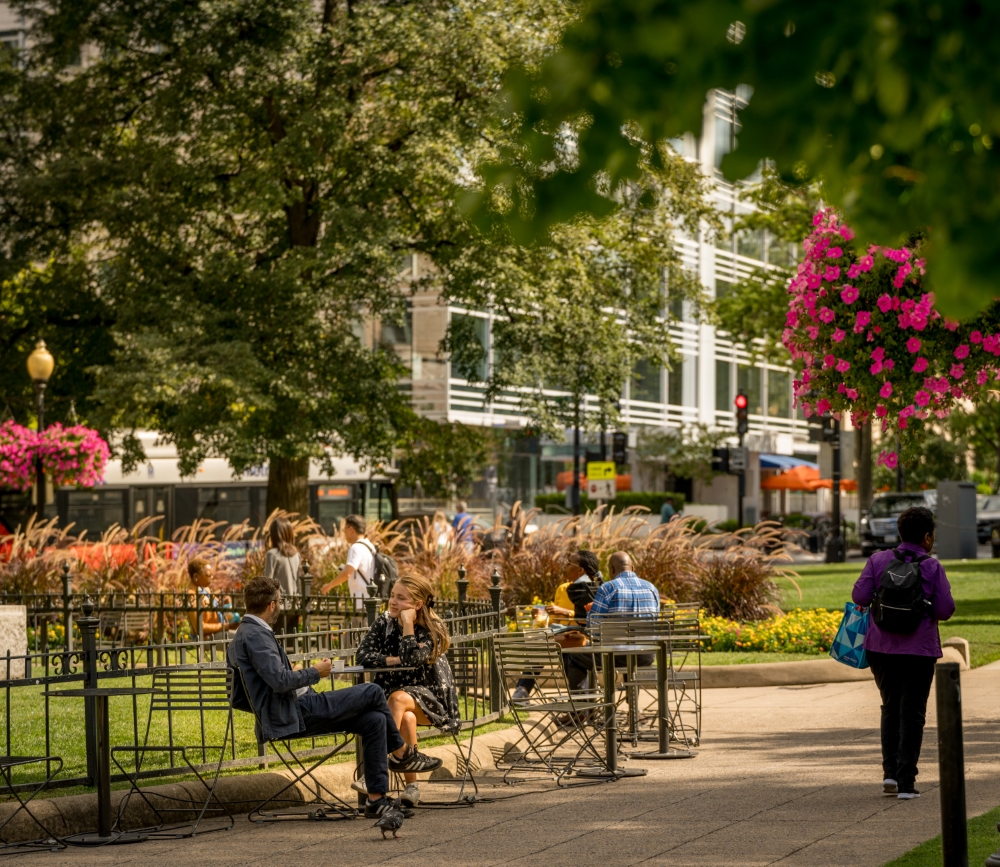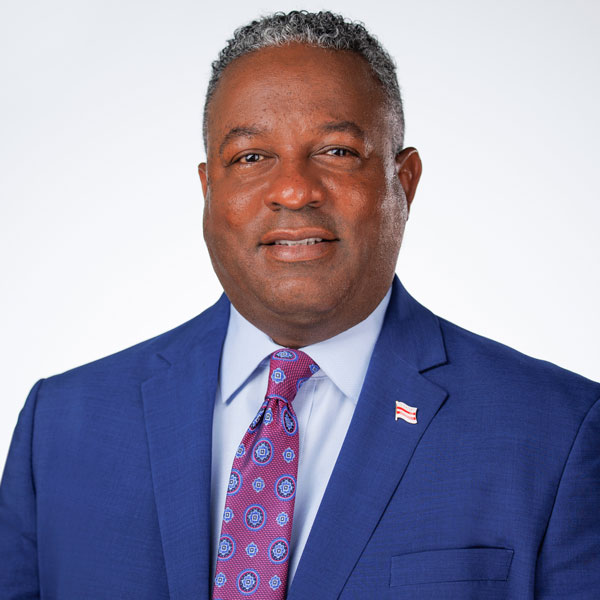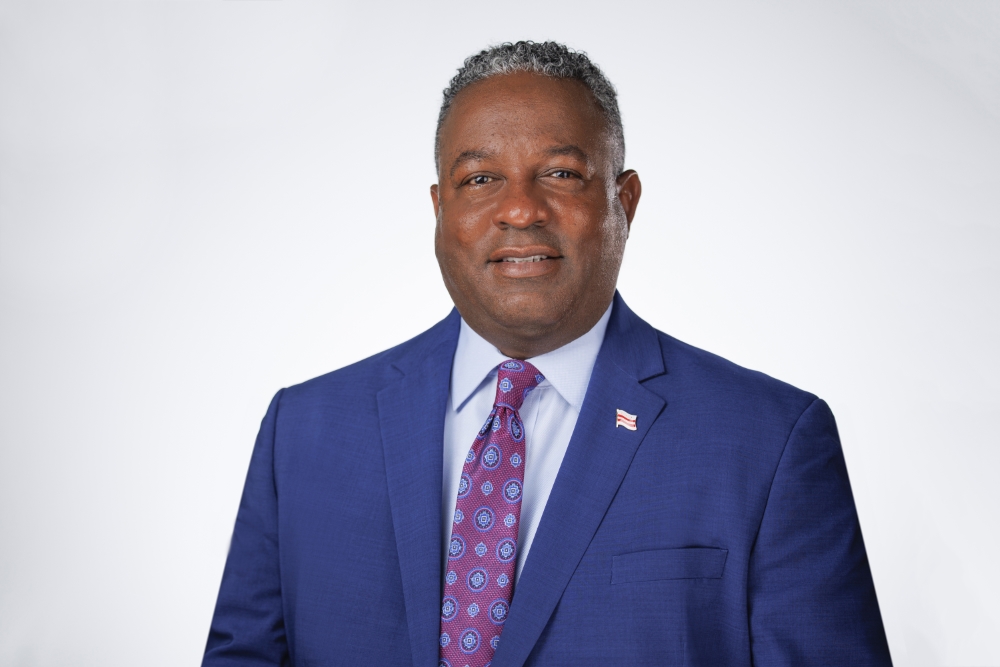Washington DC Economic Partnership President & CEO Derek Ford is a no-nonsense kind of guy. When he speaks, people listen, and he knows how to get things done.
How else to explain the meteoric of the DC economy under his leadership? For example, not only was DC recently named the top “state” in the nation for innovation; it is also on a roll when it comes to landing large-scale capital investment projects, like the redevleopment of RFK Campus which includes the single-largest private investment in DC’s history.
Ford and his team at the Partnership are a big reason why DC consistently wins huge deals like this one. For more insight into the work of the Partnership and the record-breaking run of success being experienced in the capital city, we conducted the following interview with Ford.
Adding more housing and more retailers to the city has long been a stated goal of the mayoral administration for the District. How is DC faring in this regard, and are there any new strategies for continuing the positive momentum for this effort?
FORD: Historically, retail and neighborhood development has been one of the Partnership’s greatest strengths. Since its founding, the Partnership has helped more than 350 retailers, restaurants, and entertainment businesses open and expand, representing more than 5 million square feet of real estate transactions and providing more than $100 million in annual sales tax revenue to DC.
Similarly, Housing in the District has always been a priority for Mayor Bowser. At the beginning of her second term in 2019, she had a goal of adding 36,000 homes by 2025. Last summer, DC surpassed that goal. Also in 2024, the District had a growth rate of 2% and the largest population increase in 11 years to over 700,000.
Right now, we’re focused on housing in Downtown with the goal of adding 15,000 new downtown residents by 2028. The Deputy Mayor’s Office of Planning and Economic Development has a program specifically designed to help achieve this — the Housing In Downtown Program — and we are well on our way. DC currently has the second largest office-to-residential pipeline in the nation with over 3,500 units in the pipeline.

Farragut Park in the Golden Triangle Business Improvement District
Photo Courtesy of WDCEP
Are there any particular business retention strategies that you have found to be especially successful?
FORD: The best retention strategy is just being a part of your community and engaging with people. At the Partnership, we strive to foster a sense of community and strengthen relationships throughout the business ecosystem. To that end, we hold bi-monthly networking events in our office where we share insights on our work and, more importantly, listen to the needs of the business community and celebrate our collective wins.
Another key part of our retention strategy centers around our twice-annual Retention Blitz, where members of our business development team reach out directly to DC employers to gauge the temperature of the market, listen to their concerns, and connect them with the proper support and resources to allow them to thrive in the District. This year’s retention blitzes touched over 1,000 companies and resulted in 150 one-on-one meetings with employers representing more than 10 million square feet of leased office space in DC.
You mentioned recently that part of the WDCEP business attraction strategy is to lure more regional headquarters operations to the city. How are you reaching out to companies for this, and do you have any recent success stories that you can share?
FORD: Our goal is always to attract your corporate headquarters. But even if that’s not feasible for a company, there’s always a reason to be in the District. Whether it’s your regional headquarters or your communications team or your policy office, there is value in the unmatched access to decision-makers that only DC can provide.
A good example is JPMorganChase, whose Mid-Atlantic headquarters is just a half-mile away from our offices in downtown. Although officially headquartered in New York, they’re intentional about having a DC presence and have invested over $1 billion in our community over the last few years.
Other examples include Meridiam, a Vitality Fund recipient from France who opened their North American headquarters here at 1700 Pennsylvania Ave just a block away from the White House. We are aggressively pursuing the international market through initiatives like the Washington DC Global Soft Landing Program.

“Overall, we won 17 new projects in 2024 representing 1,119 jobs and 302,000 square feet of space leased.”
— Derek Ford, President & CEO, Washington DC Economic Partnership
Another is Kellen, an association management company which has maintained a DC presence since the 1990s but was headquartered in Atlanta. Last year, they applied for the Vitality Fund and made the decision to expand their space in the National Press Building, doubling down on the District.
Overall, we won 17 new projects in 2024 representing 1,119 jobs and 302,000 square feet of space leased.
Talent attraction and retention are also among your organization’s stated goals. How are you able to reach out to the many colleges and universities in the area to achieve this?
FORD: One of DC’s biggest strengths is our incredible talent pool. Just this past year CBRE named us the No. 1 City for Cybersecurity Talent in the Nation. This is largely because of our more than 75 colleges and universities. In addition to supplying our ecosystem with world-class talent, it has a tremendous impact on our economy, generating more than $15 billion in economic impact every year.
How important was the successful retention of the Capitals and Wizards to the city? How will the new entertainment complex impact the city upon completion?
FORD: As the Mayor says, “Washington DC, is truly the Sports Capital.” Keeping Washington, DC’s teams in Washington, DC, was a win the whole city celebrated. It was especially important to Downtown DC and the Chinatown/Gallery Place neighborhood, which is a priority for DC government. Monumental Sports’ commitment to DC will help bolster the Downtown Action Plan and further the work of the Chinatown/Gallery Place Taskforce. DC has invested $515 million into Capital One Arena, including acquiring it and leasing it back to Monumental. The renovations will turn it into a world-class entertainment destination.
How will the redevelopment of RFK position the city for growth and development in that part of town?
FORD: Gaining control of RFK is huge for DC. But it is about much more than welcoming the Commanders back to the District. The RFK Campus is 174 acres with access to public transportation — an ideal location for growth. However, the old lease restricted the usage to “stadium purposes.” Now that the land is under District control, the vibrant mixed-use neighborhoods that DC is famous for are possible. We can build restaurants, housing, a sports complex, parks and a stadium all on one campus. (More info on this redevelopment project can be found at ourrfk.dc.gov.)
In 2024, the city officially surpassed pre-pandemic numbers for tourism. How important is the tourism sector to the city?
FORD: We actually surpassed pre-pandemic numbers in 2023 with nearly 26 million visitors. Tourism is incredibly important to DC. Elliott [Ferguson] and his team at Destination DC do an amazing job. We work very closely with them. Tourism is economic development, and it’s crucial that our organizations are aligned. We have even started integrating their successful “Only One DC” messaging into a business context for our initiatives, starting with our SelectUSA Investment Summit presence in 2024. It will continue to be present in our work going forward.
How many new jobs has the DC Vitality Fund incentive brought to the city?
FORD: As of the last public announcement:
- 870 new jobs
- 486 retained jobs
- $35.1 million in capital improvements
- 231,000 leased square feet.

